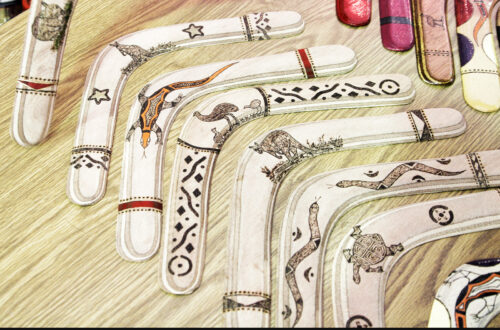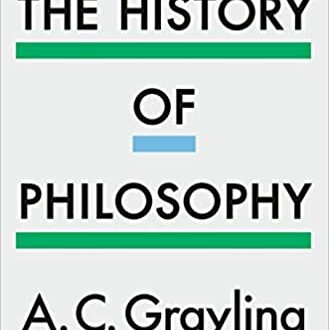Do we own tech or does it own us? A cliche perhaps, but Challies’ book, The Next Story, does a great job of helping the reader have technological discernment.
Technology is not inherently bad nor is it neutral. Challies argues that technology is inherently good. In fact, technology is a result of the God given mandate to “be fruitful and multiply,” it is, according to Challies, “the creative activity of using tools to shape God’s creation for practical purposes.” What goes wrong is the human application of technology. And that is because technology is subject to the fall, the curse and sin.
Challies writes in order to bring technology into focus. But technology is everywhere, isn’t it already in focus? Challies argues that technology has taken on mythic status, as if it has always been there like an everlasting operating system. To allow technology this status is a mistake and is only one step removed from it being an idol. Challies likens idolatry to an addiction–technoholism–always on screens, habitual updates, the inability to say no when asked, “play again?”
What does technology do? By recognizing that technology is not mythic, but made by sinful human beings, we can recognize that all technology carries with it ideologies. “The true message of these digital technologies is buried deep inside them and will eventually be revealed in time. We will see their effect in the ways we think differently, act differently, and understand ourselves differently” (39). Technology is instigating ecological change and is not merely an additive to our culture. Challies notes that technology shifts power as those who embrace it become culturally dominant and it changes human biology, how the brain processes information.
Challies recognizes that our culture is only just beginning to see the effects of the digital explosion. There are many who are “digital immigrants,” who remember life without computers. But there will come a time when their influence will be gone, when everyone will be a “digital native.” This brings up the point that, for the native, self-identity is largely shaped by the digital. Natives are often unable to recognize the difference between on and off-line, seeing them as part of the whole. Natives feel like they are missing out when cut off from the on-line world. Perhaps, Challies suggests, face-to-face interaction is, for the native, becoming increasingly uncomfortable.
One can see the influence of the digital in common language used to talk about the self. We have imported the metaphor of CPU as a descriptive idea for brain function, human processing and interaction. We think about upload and download as synonyms for thinking and engaging with the world. The lines between digital and synapse are blurred. Some even believe that the content of a personality could be adequately represented in digital, stored in bites.
Challies attempts to answer the questions: how is technology changing us? and, what risks and opportunities does that present? Challies presents six areas in which he sees change occurring – communication, mediation/identity, distraction, information, truth/authority and viability/privacy.
Perhaps most obviously, the digital revolution has given rise to an explosion in communication – we can speak to the world as easily as we used to talk to ourselves. This is an amazing opportunity to speak truth in a loving way. This, however, is not what has happened. Instead, Challies, suggests, we have become shallow of speech, spinning our way through thought in catch phrases, never pausing to think. Challies points to the Biblical exhortation to tame the tongue and note its power to destroy as well as build up. We should be slow to speak (Prov 10:19) and should be careful to use our tongue and, by extension, our status update, to speak truth and wisdom with love.
Challies suggests that by transmogrifying to a digital self we move from immediate to mediated interaction with one another. Such mediation is tantamount to creating one’s own avatar, an idealized version of oneself, in order to interact with the world (or an alternate online world). This is damaging to community, which relies on immediate contact with other people. Challies suggests that community now means no more than communication and that this means we are now “a network of individuals” rather than a community of people.
We take our sense of self, our sense of presence, and transport it into the ethereal world of bits and bytes. Suddenly we are here and there, at a desk in body but in soul or spirit somehow present in cyberspace. And this is new to us, new to human experience. When we venture into the world, this mediated world, we leave our bodies behind. And more and more of us are finding that we actually like it this way, that being able to experience a space free from the limitations of real presence brings a kind of joy (100).
This, to Challies, sounds worryingly close to a kind of Gnosticism, a desire to be disembodied. And it has damaging effects. Family, community, dept of relationship and, vitally, church, all require unmediated, embodied physical presence. To substitute the real for the unreal would be the worst kind of life because love, real love, requires unmediated contact with one another. Community is not the same as network, communication is not the whole relationship.
Our contemporary, digitized world measures success by speed, capacity and productivity. And that is exactly how we choose digital devices. Our view of self has imported the same criteria we use for selecting computers and used them for judging people. The drawback to valuing these criteria is that they don’t produce wisdom. In our urge for speed we have unlearned how to read. Instead we skim.
The added difficulty is that the companies behind the digital revolution want us to get better at it. Consider Google. Google’s aim is to get the reader/looker to move quickly from site to site. The more you move the more money they make. The last thing they want is you to be lingering on a page, reading and meditating on ideas and concepts. They want you to skim, to lightly dance on as many pages as possible. And they know how to get what they want. This, Challies suggests, has made us brilliant skimmers, but less good readers. I must admit I used to find skimming difficult at school and would get stuck, slowly reading books and pausing to think. Now, since I only really skim online, I am able to digest the gist of a blog without reading half of it. Chances are, you are only skimming this blog!
Such shallow approaches to the world diminish our wisdom, make us shallow thinkers and requires us to counter our distractions by developing a thoughtful, deliberate life. We need to retrain ourselves to listen. This means getting used to listening, reading and thinking, at length, to one thing at a time, resisting the urge to blast the long-winded for being boring and requiring the snapshot Cliff notes version of everything. It also means getting out of the unproductive urge to multitask. Do one thing at a time. Challies points out that Solomon, the wisest man who ever lived, was deliberate, slow. Being slow. How much we have changed the meaning of “slow” for being deliberate to being behind. This shows us our need in this area.
We have a glut. There is just so much information. The common wisdom has been – more information=more wisdom. Not so, argues Challies. In fact, the reverse may be true. We are outsourcing memory, downplaying thinking and treating the gathering of information in a means-ends manner, all aimed at making the grade, getting the job done. Just because we have more data does not mean we will make the world better:
We are becoming a people whose knowledge is a mile wide and an inch deep. The Bible seems to tell us that it would be far better to know fewer things, but to know those things on a much deeper level. Virtue is not in the accumulation of facts, in winning a game on Jeopardy, but in living a life marked by wisdom, by the application of knowledge. If we are to live in this way, we must be willing to step outside the torrent of information; we must be willing to understand that information is a great servant but a lousy master (154).
Consider Wikipedia. The encyclopedic site aims to provide information on everything as supplied by everyone. What is true about a subject is decided by consensus. This is markedly different, Challies points out, to how the Encyclopedia Britannica was composed. A group of authoritative experts wrote to inform everyone else the truth of the matter. Despite the obvious fact that even experts can be wrong, the point is how a technology drives a change in thinking about information and assumptions of what makes something true or not.
Finally, Challies confronts the surveillance culture we are now a part of: “we are under constant surveillance. Our lives are lived before the public today in a way they never have been before.” Just think about it. What we do, where we go, what we live, who we interact with are all, in principle, trackable and storable. When I die a good percentage of my life could be retold just because of the digital trail I leave behind me.
What Challies notes about this is that a new breed of elite is becoming established – those who know how to manage and use this information – the Numerati. The Numerati are mathematicians and computer scientists who take vast quantities of data and form a cohesive narrative to inform governments, companies and individuals of who we are. And we are our virtual selves. That’s all we are. Consider Facebook. The value of Facebook lies in nothing but data. Data about you and me.
What this means in practice is that what we do online and on our phones is, to some extent, the fruit of our lives. It tells us something about us. What will we leave in the digital world: a series of purchases? A pile pf pictures of self? A series of stock market blunders? Or will it reveal our darkness, our secretive lusts? Will the digital trail tell a story of sadness, depression, of searches for help? I wonder what they will do in years to come. Will the Numerati publish our stories for all to see – what we have left behind?
This perhaps is the most challenging part of the book. What story would they tell about me? What would they say about you?
Challies, a blogger, pastor and author, does us a service. He accumulates his sources well from diverse disciplines – social sciences, philosophy, theology and experience. His analysis has the quality of bringing to light what you already know and forcing you to think it through to the end. The only downside is the artificial separation of practical advice from the main body of the book. Each chapter has an application section. I must admit, I skipped them. Applications seemed to flow throughout the chapters and I could not see how more was needed.


